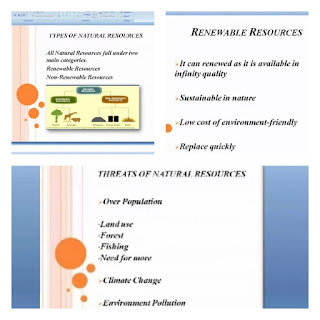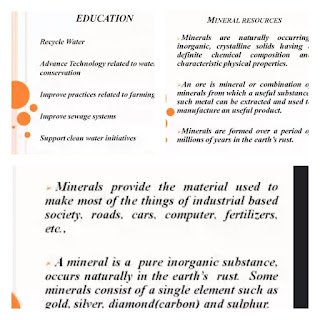UNIT 1
INTRODUCTION TO ENVIRONMENTAL EDUCATION
INTRODUCTION :
Environmental education enables learners to develop a structure of knowledge about
the world and seek knowledge that they can use and develop throughout their lives.
Environmental education empowers learners by enabling them to participate in a sustainable
future. Thus the foundation for a lifelong learning is laid by environmental education
Objective:
At the end of this unit you will be able to
• Define the concept of environment, environmental science and eco-system
• Explain the objectives of the environmental education
• Identify the historical development of the branch eco-system
• Establish the relationship between eco-system and economic development
• Understand the socio-economic concept of degradation of environment
MEANING OF ENVIRONMENTAL EDUCATION
Environment is derived from the French word “Environner”, which means encircle or
surrounding. Environment is a complex of many variables, which surrounds man as well as the
living organisms. Environmental education describe the interrelationships among organisms, the
environment and all the factors, which influence life on earth, including atmospheric conditions,
food chains, the water cycle, etc. It is a basic science about our earth and its daily activities, and
therefore, this science is important for everyone.
Aim:
The aim of environmental education is clearly to show the economic, social, political and ecological interdependence of the modern world, in which decisions and actions by different countries can have international repercussions. Environmental education should, in this regard, help to develop a sense of responsibility and solidarity among countries and regions as the foundation for a new international order which will guarantee the conservation and improvement of the environment.
Need and importance:
We know that the world of today is suffering from the problem of environmental degradation. Some of these problems are at the global level while some are at the regional level. At the global level the problems are: global warming, depletion of ozone layer in the stratosphere, acid rain, deforestation, loss of bio diversity etc. On the other hand, regional level problems include: soil erosion, soil pollution, ground water depletion, water pollution, solid waste pollution, noise pollution etc. All these problems are the result of human activities. Whatever wrong has been done to the environmental needs to be rectified. To protect and manage the environment it is essential to have a sound environmental education (EE) system.
The scope of environmental education:
The scope of environment education is also called the content or subject matter of environment education. There are different aspects and components in the environment. Among them, the biological, physical, social and cultural aspects are important.
Unit 2-Natural Resources
Unit-3 International Efforts For Environmental protection

 |
Date:27.04.2021
UNIT 5
In this unit mam ellobrately discussed about the curriculam framework of EE.

































No comments:
Post a Comment